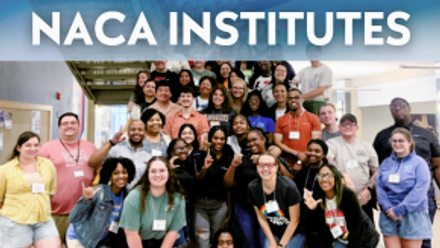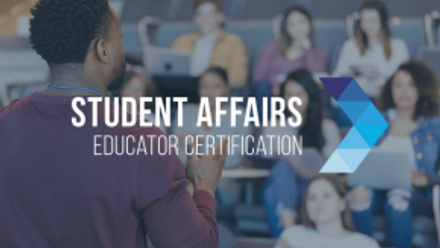Amplifying Student Voices: Cultivating Changemakers in Higher Education
With their diverse perspectives and commitment to social justice, students possess the power to shape not only their own experience but also the world around them. To translate this potential into impactful contributions, it is essential to build an environment that amplifies student voices and empowers them to take action.
This article explores the significance of fostering a nurturing environment for student changemakers within higher education. It examines the mutual benefits for both students and institutions and subsequently outlines strategies for cultivating a supportive atmosphere where student voices can truly flourish.
The Power of Student Changemakers
Through passion, creativity, and determination, student changemakers serve as catalysts for social innovation and progress. Their initiatives and involvement not only address today’s challenges but also offer a multitude of benefits:
- Developing Leadership Skills: Initiatives for change necessitate clear and persuasive communication so leaders can articulate their vision, motivate their team, and strengthen stakeholder relationships. They also foster a sense of responsibility, ethical awareness, and integrity, all of which are invaluable leadership qualities.
- Promoting Social Change: Students are often at the forefront of social movements, advocating for meaningful change, and demonstrating a willingness to challenge the status quo. Their efforts can create a ripple effect, driving positive advancements on campus, in local communities, and even at the national level.
- Enhancing Civic Engagement: Institutions can empower their students by fostering a culture of social responsibility, providing resources for community involvement, and establishing platforms for meaningful dialogue. In doing so, these students become equipped with the knowledge and tools to become informed and engaged citizens.
- Building Community: In organizing collaborative projects that unite individuals toward a common goal, student changemakers foster teamwork, inspire collective action, and utilize the diverse skills of participants to achieve meaningful results. With this, the community's sense of belonging is strengthened as individuals feel valued and connected, fostering a supportive and inclusive environment.
- Enriching the Educational Experience: Engaging in change-making initiatives fosters critical thinking, problem-solving, and collaboration skills, complementing academic knowledge with practical experience. It cultivates a sense of agency and empowerment, motivating students to take ownership of their learning journey and make a positive impact in society.
Institutions also benefit from the leadership and impactful initiatives of student changemakers. Here’s how:
- Diverse Perspectives: Student voices often highlight issues that may have otherwise gone unnoticed or unaddressed. Their unique perspective can inform decision-making and lead to a more inclusive and responsive campus environment.
- Innovation and Creativity: With their unique perspectives, students tend to enrich the problem-solving process often leading to innovative solutions. Their “outside the box” thinking can compel institutions to adopt a different approach and explore alternative strategies.
- Enhanced Reputation: When an institution fosters a culture that supports student changemakers, it demonstrates a commitment to social responsibility and engagement. This can attract prospective students, faculty, and donors who value these qualities.
- Stronger Alumni Network: Students who are actively engaged with their institution are more likely to maintain connections with their alma mater after graduation and contribute positively to its legacy. A robust alumni network can be a valuable asset for fundraising, mentorship programs, and university advocacy efforts.
Supporting Student Changemakers
Creating a supportive environment is crucial for nurturing student changemakers. Here are some key strategies that institutions can implement to foster their growth and success:
- Empowering Student Organizations: Offer resources and support for student organizations dedicated to driving social change. This encompasses providing designated meeting spaces, financial support for projects, and training opportunities aimed at enhancing student leadership skills.
- Inclusive Governance: Establish pathways for student representation on various committees and decision-making bodies. This allows students to directly voice their concerns and participate in shaping institutional policies relevant to their campus community.
- Open Communication Channels: Foster trust and understanding among students and administration through transparent communication. This can be achieved by organizing regular town hall meetings, appointing designated student liaisons, and ensuring accessible platforms for submitting grievances.
- Skill-Building Workshops: Offer engaging workshop opportunities designed to equip students with the essential skills needed to drive meaningful change. This may involve integrating methodologies like True Colors into training sessions focused on communication, leadership, negotiation, and project management.
- Faculty and Staff Support: Encourage faculty and staff to become involved in their students’ initiatives by providing opportunities for engagement. This can be achieved through workshops that explore how to support student-led organizations by integrating experiential learning opportunities into curricula and fostering mentorship relationships among student leaders.
- Mentorship Programs: Connect student groups with seasoned activists and alumni mentors. This allows students to benefit from the experience and guidance of those who have demonstrated their ability to drive change and remain resilient in the face of challenges.
- Safe Space for Expression: Ensure that campus policies uphold the principles of free speech and assembly. This provides students with the opportunity to express their views openly and safely, fostering an environment where diverse perspectives are welcomed and respected.
- Public Recognition and Awards: Recognize and celebrate student efforts through awards, public commendations, and media coverage. This reinforces the value of student voices and inspires others to actively engage in initiatives for positive change.
Realizing students’ ability to become effective agents of change is pivotal, as it not only enhances the campus environment but has the potential to impact society at large.
By nurturing this talent, we can cultivate a generation of individuals who are both prepared and passionate, equipping them to tackle the challenges of tomorrow with resilience and determination.






